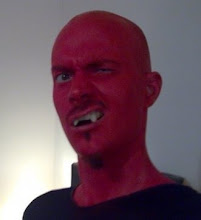The A-Team
The long marketing campaign for 2010’s summer blockbuster The A-Team is impossible for most cinema-goers to ignore, as it marks the first example of mobile phone company Orange using an actual film for trailer-length product placement rather than it’s previous campaign of the Orange spoof film board. The ad itself supposedly features the main players being filmed using orange product placements in stilted, awkward scenes, attempting to poke fun at product placement despite that being what the entire segment is about. The appearance before every single film in the main cinema chains wears on the patience (even appearing before the A-Team feature itself), and serves as a second line of trailers for the film, albeit one that portrays it as unfunny and painful.
In a way this may actually have been to the film’s benefit as going in with low expectations I found it surprisingly funny, the cast working well both as characters and with each other, and at its best it has some of the funniest scenes I’ve seen this year, many moments seeming like filmed ad-libs or improv and stuck in the film in the manner of reinstated deleted scenes or outtakes, these moments giving both the film and characters a vitality and emphasis on the team that is behind the whole concept of the movie and franchise.
Initially I was skeptical about the project as a whole; not only is Hollywood currently churning out an unprecedented run of remakes and franchise re-boots but the A-Team TV show is one without a narrative arc, instead given the clearly defined characters and a brief intro at the start of every episode, apart from any two episode stories the A-Team can be dipped in and out of at will, played out of order and is therefore great for newcomers and for potential repeats. In the manner of He-Man and Thundercats, there is no beginning or end, just a timeless middle as our heroes tirelessly and bloodlessly battle their enemies with good humour, only for everything to start over again the next week.
How would the franchise be moulded into a film? It seems that there is a magical template out there as the A-Team and this year’s other military team-based action comedy the Losers shares a lot plot wise, with an initial mission in South America (before the team become a team and Iraq war vets, starting off the plot proper), a shady CIA man bad guy and a finale down the docks all feature prominently.
Impressively the A-Team comes out as the better film, the jokes funnier, the characters more likeable due to the cartoonishly delineated personality types, and the action scenes just as good - for every CGI heavy disappointment comes a moment like the stripped-down city centre gun battle with the A-Team’s impressive goon, Pike (Brian Bloom), shooting up the scenery with a calculating savagery resulting in a piece that at least nods towards Michael Mann, or the hilarious tank scene.
Of the main four Sharlto Copley shines as Murdoch, his manic antics kooky enough to be funny but never really edging into self-conscious territory; Bradley Cooper often plays charming arrogant types and is perfectly suited to Face, almost the extreme of suave bastards; Quinton Jackson’s BA is a big difference from Mr.T’s permanently angry TV version, here is menace diluted by a warm smile and laughter, but this more jovial BA sits better with the knowing parody that the film is, the dangerous, scowling BA of the TV show wouldn’t fit well with the tone here; lastly Liam Neeson is fairly bland as Hannibal, his physical presence not as necessary to the role as his part in Taken, it seems he doesn’t know what to do with the character and so resorts to the speechifying leader of men he has almost become typecast for. Patrick Wilson is great as agent Lynch, a subtle version of Jason Isaac’s agent in the Losers, he manages to be both weaselly and suave simultaneously, at times acting the man in charge and others a hint of a sliver of a little boy out of his depth.
The A-Team is closer to director Joe Carnahan’s last film Smokin’ Aces than debut Narc, the ensemble cast and knockabout tone in keeping with his previous feature but a little tighter and more focused, no doubt helped by the franchise origins. The A-Team is a pleasant surprise, not a great movie but a good one, and one that at least doesn’t feel like a pointless exercise in regurgitating old ideas.

